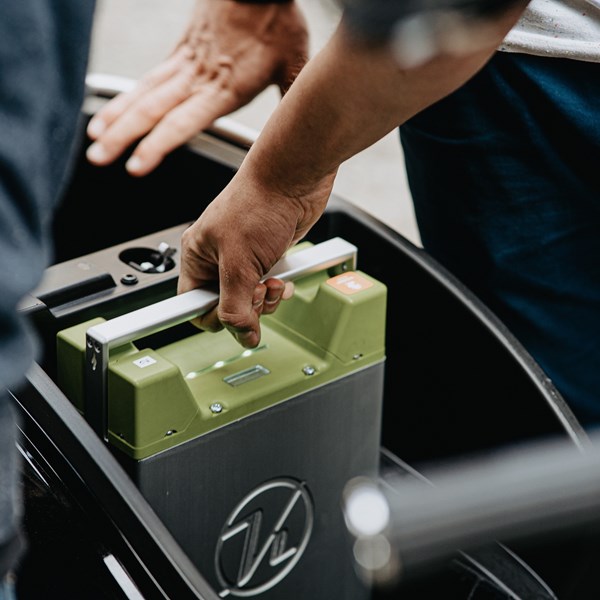The UPC Paris Local Division has ruled that it has jurisdiction to determine infringement of designations of a European patent which are not UP territories and non-EU states by defendants which are not domiciled in the EU or a UPC contracting member state.
The case concerns the alleged infringement of European Patent EP4153830, entitled “Lock comprising a slider which is flush relative to a sole plate provided with a recess for receiving a translation stop of the slider,” owned by IMC Créations (the “Patent”).
The defendants, Mul-T-Lock France and Mul-T-Lock Suisse, raised a preliminary objection requesting that the UPC declines jurisdiction to hear the case in relation to the Patent’s ‘non-UP’ designations (being the UK, Spain and Switzerland) as these jurisdictions are not part of the unitary system.
IMC Créations counterargued that the UPC does in fact have jurisdiction over the non-UP designations, relying on the CJEU decision of February this year in BSH Hausgeräte v Electrolux (C-339/22). In this decision (summarised here) the CJEU ruled that courts of Member States (including the UPC) could determine infringement of designations of patents in third countries, such as the UK - and that it could reach ‘inter partes’ decisions on the validity of those patents.
Brussels I Regulation (the “Regulation”) and the Lugano Convention govern the international jurisdiction of the UPC pursuant to Article 31 of the UPC Agreement.
Article 4(1) of the Regulation also sets out that:
“persons domiciled in a Member State shall, whatever their nationality, be sued in the courts of that Member State.”
An exception to Article 4(1) exists under Article 24(4) of the Regulation which sets out that:
“The courts of the Member State in whose territory the filing or registration was requested shall have sole jurisdiction, without regard to the domicile of the parties, (…) in matters of the validity of patents, (…) whether the question is raised by way of action or exception (…).”
The Regulation is applicable to the Spanish designation of the Patent, as an EU member state. The Court considered that the same principles are reflected under the Lugano Convention, which is applicable to the Swiss designation of the Patent.
The Court ultimately rejected Mul-T-Lock’s preliminary objection and confirmed its jurisdiction to hear the case in respect of all non-UP designations of the Patent. The Court relied on various policy considerations in reaching its decision, stating that a patentee must be able to obtain a comprehensive decision before a single forum and avoid the risk of divergent decisions.
The Court expressly followed the decision of the CJEU in BSH Hausgeräte v Electrolux in relation to the scope of Article 4(1) and 24 of the Regulation, in respect of the British and Spanish designations. In this decision, the CJEU held that a court of an EU Member State (which includes the UPC) where the defendant is domiciled has jurisdiction to hear an infringement action in relation to designations of a patent not validated in that Member State, even if the validity of the patent is challenged. This also aligns with the recent decision of the Düsseldorf Local Division in Kodak v Fujifilm.
The Paris Local Division transposed the same reasoning of the CJEU’s decision to the Lugano Convention, in order to find jurisdiction in respect of the Swiss part of the Patent. This part of the decision is most controversial in that the second defendant to the claim, Mul-T-Lock Suisse (the Swiss branch of Mul-T-Lock France), is not domiciled in an EU Member State or UPC contracting member state. The Court further reasoned that the domicile in a Member State (France) of one of the defendants (the ‘anchor defendant’) was sufficient for the purposes of both defendants / the group entity, in accordance with Article 8 of the Regulation. As such, this case demonstrates that the UPC has jurisdiction to decide on infringement of all EP designations across all group entities in EPC states (not just the 18 contracting UPC states).
We await to hear whether an appeal will be made by Mul-T-Lock. However, this judgment indicates a further extension to the UPC’s “long-arm jurisdiction”, casting some doubt on the requirement for the defendant in question to be domiciled in a UPC or EU member state. This recent line of authority on jurisdiction may increase the attractiveness of the UPC for claimants, with the ability to bring a single infringement action with a wide-jurisdictional reach, resulting in significant cost efficiencies. However, it may also prompt parties to commence national invalidity actions or seek declarations of non-infringement in order to pre-emptively seize jurisdiction and prevent the UPC from making any infringement finding which extends to third countries such as the UK.
However, there remain big questions as to the enforceability of these decisions in such ‘third countries’ like the UK.
Case reference: Mul-T-Lock France and Mul-T-Lock Suisse vs IMC Creations (UPC_CFI_702/2024)






